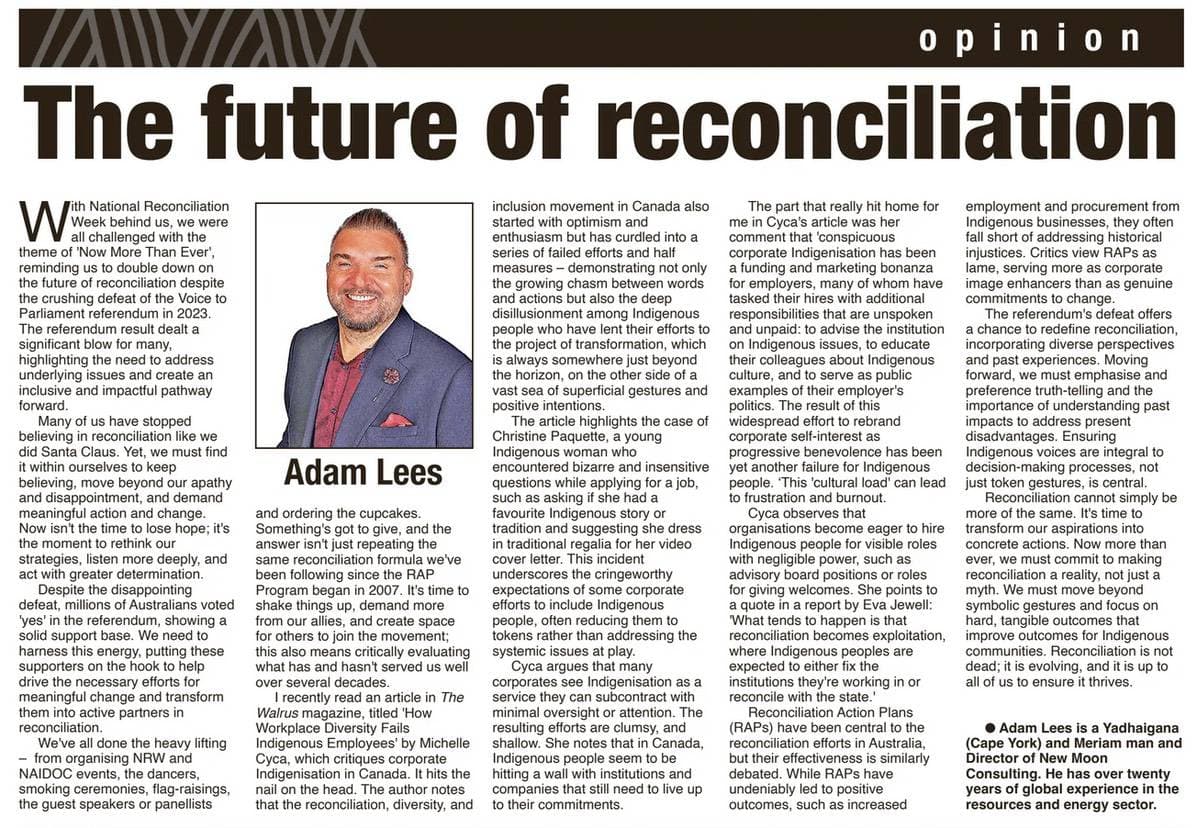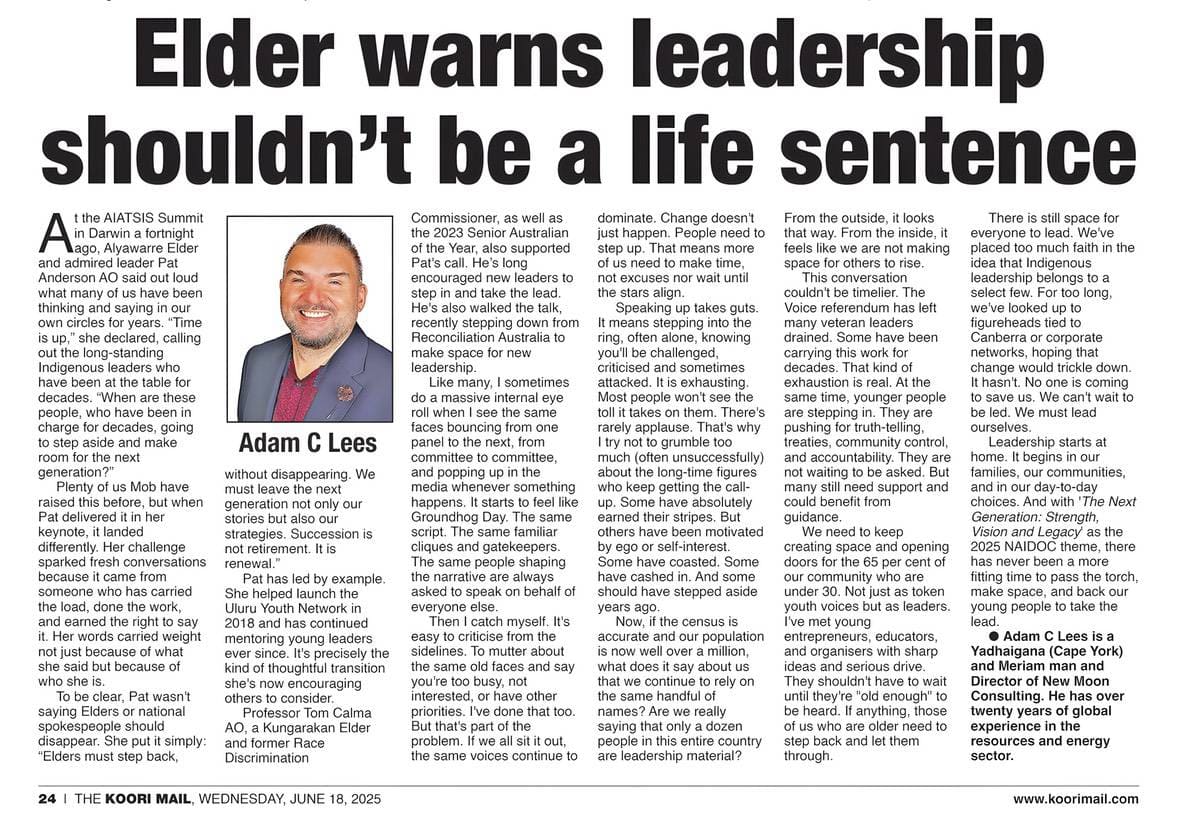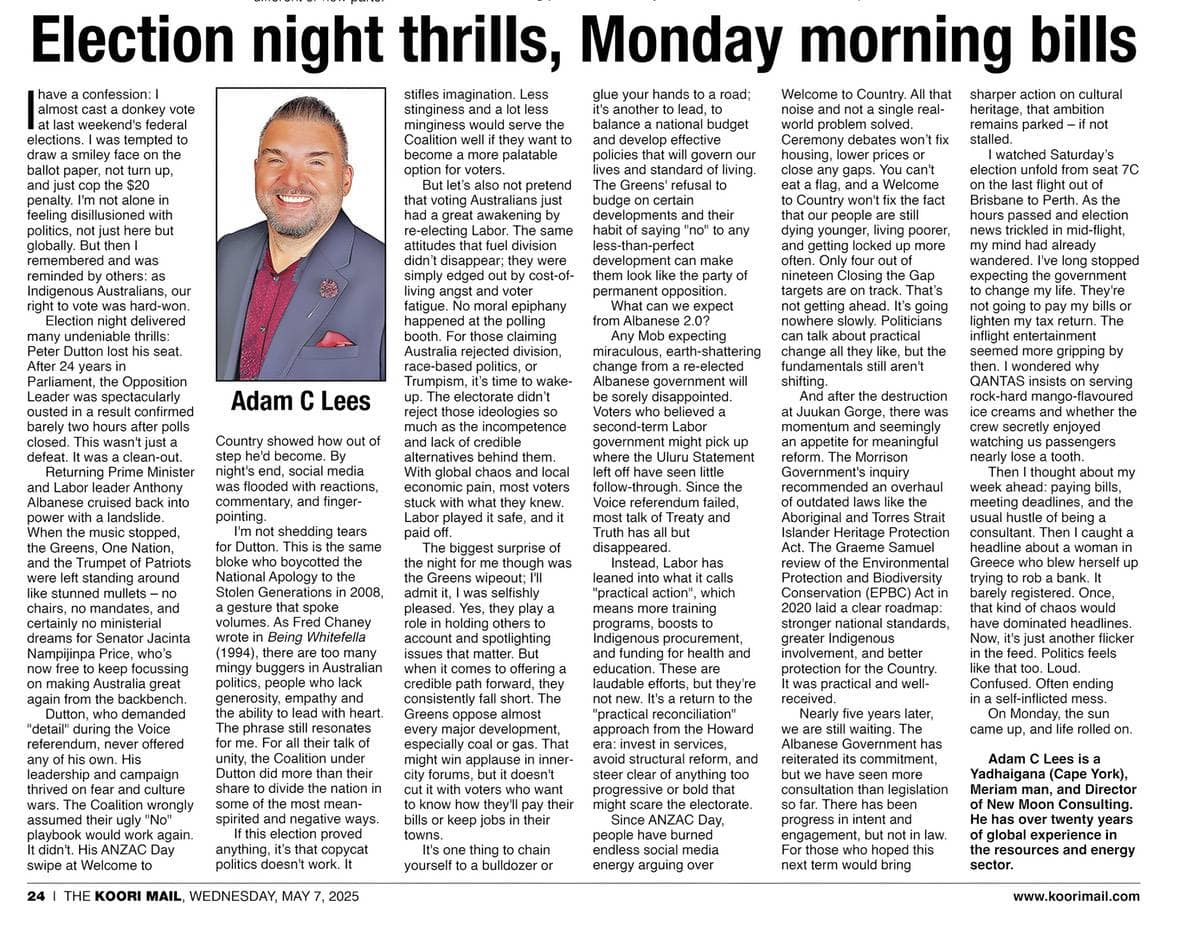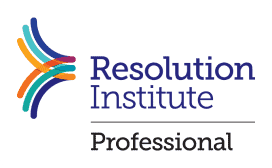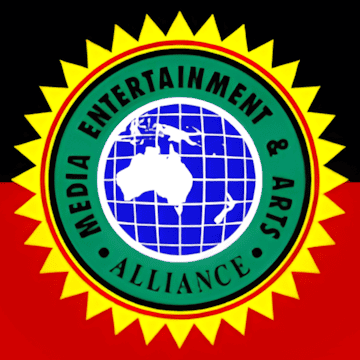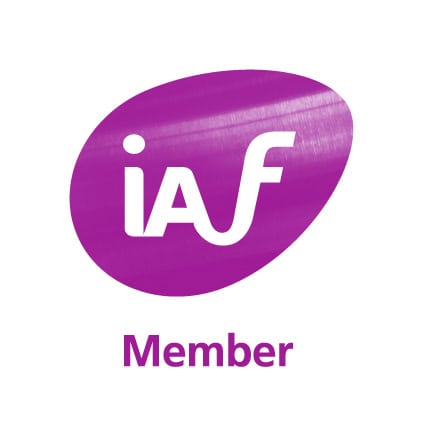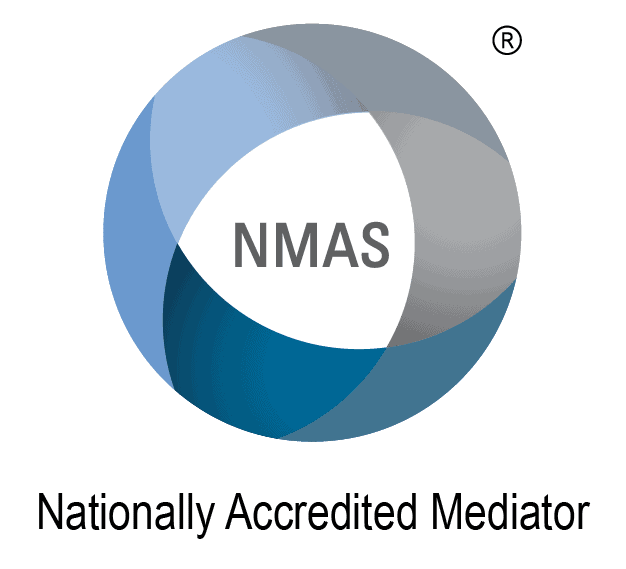With National Reconciliation Week behind us, we were all challenged with the theme of ‘Now More Than Ever’, reminding us to double down on the future of reconciliation despite the crushing defeat of the Voice to Parliament referendum in 2023. The referendum result dealt a significant blow for many, highlighting the need to address underlying issues and create an inclusive and impactful pathway forward.
Many of us have stopped believing in reconciliation like we did Santa Claus. Yet, we must find it within ourselves to keep believing, move beyond our apathy and disappointment, and demand meaningful action and change. Now isn’t the time to lose hope; it’s the moment to rethink our strategies, listen more deeply, and act with greater determination.
Despite this disappointing defeat, millions of Australians voted ‘yes’ in the referendum, showing a solid support base. We need to harness this energy, putting these supporters on the hook to help drive the necessary efforts for meaningful change and transform them into active partners in reconciliation.
We’ve all done the heavy lifting — from organising NRW and NAIDOC events, the dancers, smoking ceremonies, flag-raisings, the guest speakers or panellists and ordering the cupcakes. Something’s got to give, and the answer isn’t just repeating the same reconciliation formula we’ve been following since the RAP Program began in 2007. It’s time to shake things up, demand more from our allies, and create space for others to join the movement; this also means critically evaluating what has and hasn’t served us well over several decades.
I recently read an article in The Walrus magazine, titled ‘How Workplace Diversity Fails Indigenous Employees’ by Michelle Cyca, which critiques corporate Indigenisation in Canada. It hits the nail on the head. The author notes that the reconciliation, diversity, and inclusion movement in Canada also started with optimism and enthusiasm but has curdled into a series of failed efforts and half measures — demonstrating not only the growing chasm between words and actions but also the deep disillusionment among Indigenous people who have lent their efforts to the project of transformation, which is always somewhere just beyond the horizon, on the other side of a vast sea of superficial gestures and positive intentions.
The article highlights the case of Christine Paquette, a young Indigenous woman who encountered bizarre and insensitive questions while applying for a job, such as asking if she had a favourite Indigenous story or tradition and suggesting she dress in traditional regalia for her video cover letter. This incident underscores the growing expectations of some corporate efforts to include Indigenous people, often reducing them to tokens rather than addressing the systemic issues at play.
Cyca argues that many corporations see Indigenisation as a service they can subcontract with minimal oversight or attention. The resulting efforts are clumsy, and shallow. She notes that in Canada, Indigenous people seem to be hitting a wall with institutions and companies that still need to live up to their commitments.
The part that really hit home for me in Cyca’s article was her comment that ‘conspicuous corporate Indigenisation has been a funding and marketing bonanza for employers, many of whom have tasked their hires with additional responsibilities that are unspoken and unpaid: to advise the institution on Indigenous issues, to teach their colleagues about Indigenous culture, and to serve as public examples of their employer’s politics. The result of this widespread effort to rebrand corporate self-interest as progressive benevolence has been yet another failure for Indigenous people. This ‘cultural load’ can lead to frustration and burnout.
Cyca observes that organisations become eager to hire Indigenous people for visible roles with negligible power, such as advisory board positions or roles for giving welcomes. She points to a quote in a report by Eva Jewell: ‘What tends to happen is that reconciliation becomes exploitation, where Indigenous people are expected to either fix the institution they’re working in or reconcile with the state.’
Reconciliation Action Plans (RAPs) have been central to reconciliation efforts in Australia, but their effectiveness is similarly debated. While RAPs have undeniably led to positive outcomes, such as increased employment and procurement from Indigenous businesses, they often fall short of addressing historical injustices. Critics view RAPs as lame, serving more as corporate image enhancers than as genuine commitments to change.
The referendum’s defeat offers a chance to redefine reconciliation, incorporating diverse perspectives and past experiences. Moving forward, we must emphasise and preference truth-telling and the importance of understanding past impacts to address present disadvantages. Ensuring Indigenous voices are integral to decision-making processes, not just token gestures, is central.
Reconciliation cannot simply be more of the same. It’s time to transform our aspirations into concrete actions. Now more than ever, we must commit to making reconciliation a reality, not just a myth. We must move beyond symbolic gestures and focus on hard, tangible outcomes that improve outcomes for Indigenous communities. Reconciliation is not dead; it is evolving, and it is up to all of us to ensure it thrives.
Adam C Lees is a Yadhaigana (Cape York), Meriam man, and Director of New Moon Consulting. He has over twenty years of global experience in the resources and energy sector.
